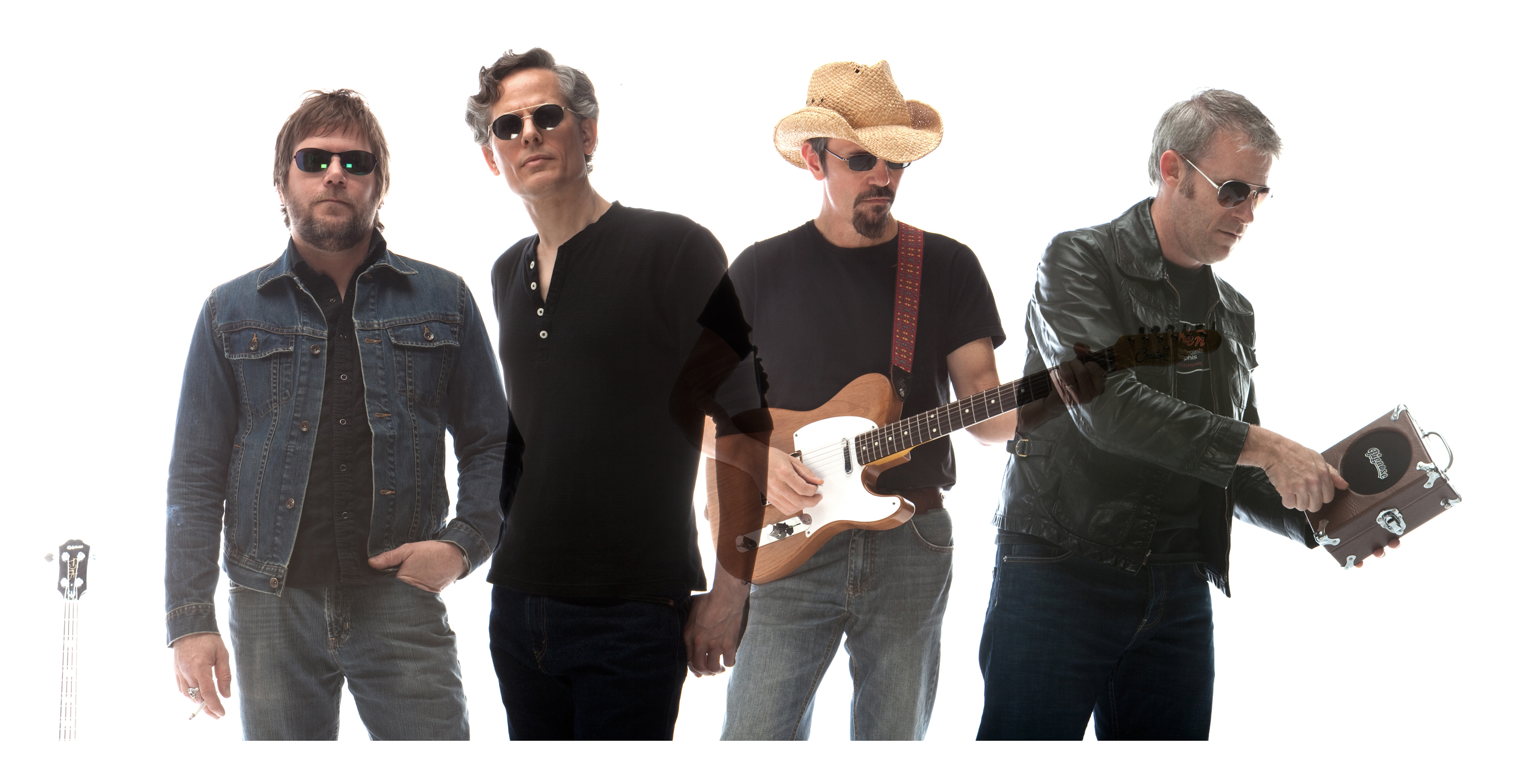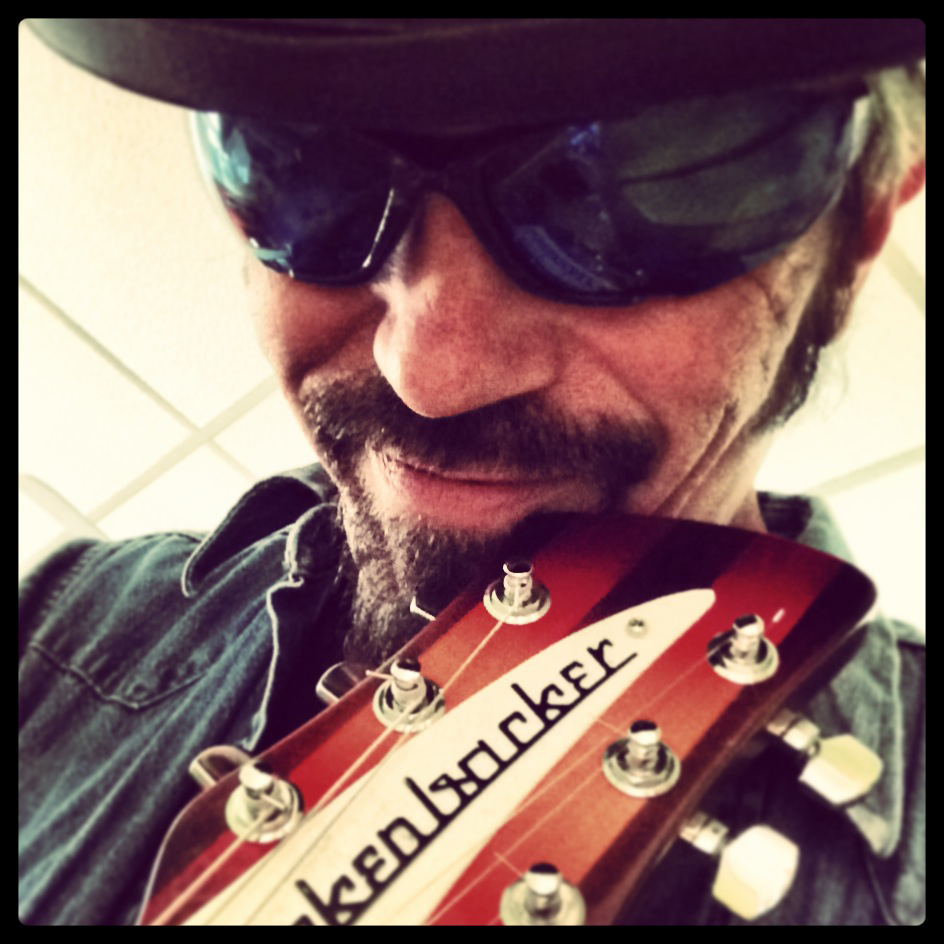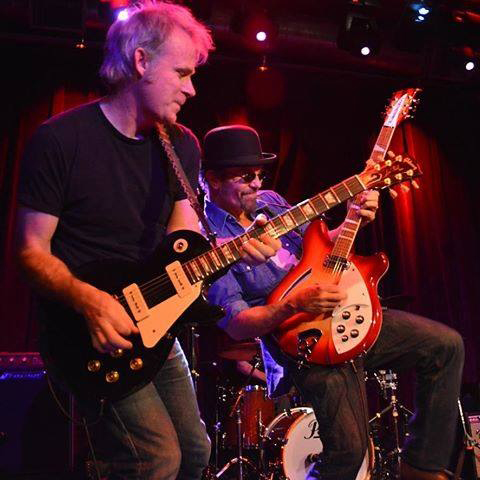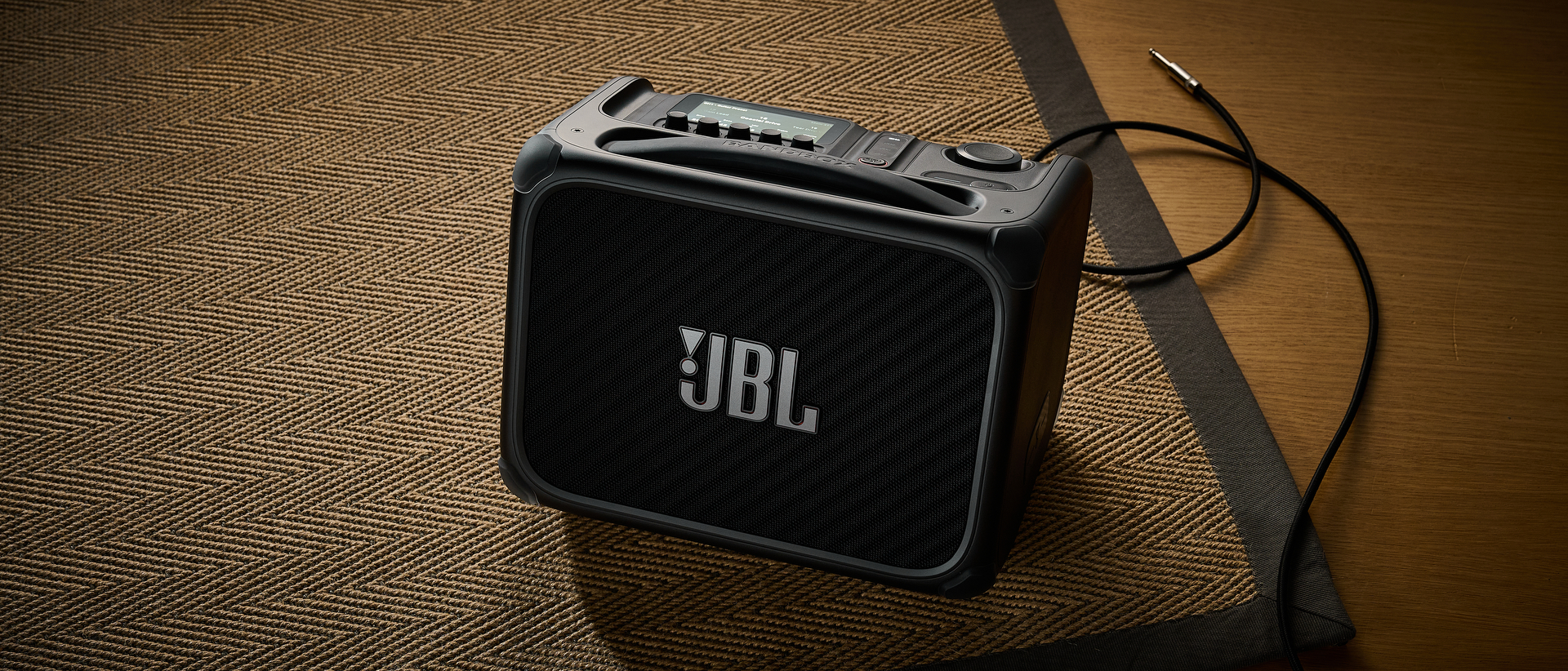The Bottle Rockets’ Brian Henneman: Rickenbacker Romance and Amplifier Angst
All the latest guitar news, interviews, lessons, reviews, deals and more, direct to your inbox!
You are now subscribed
Your newsletter sign-up was successful
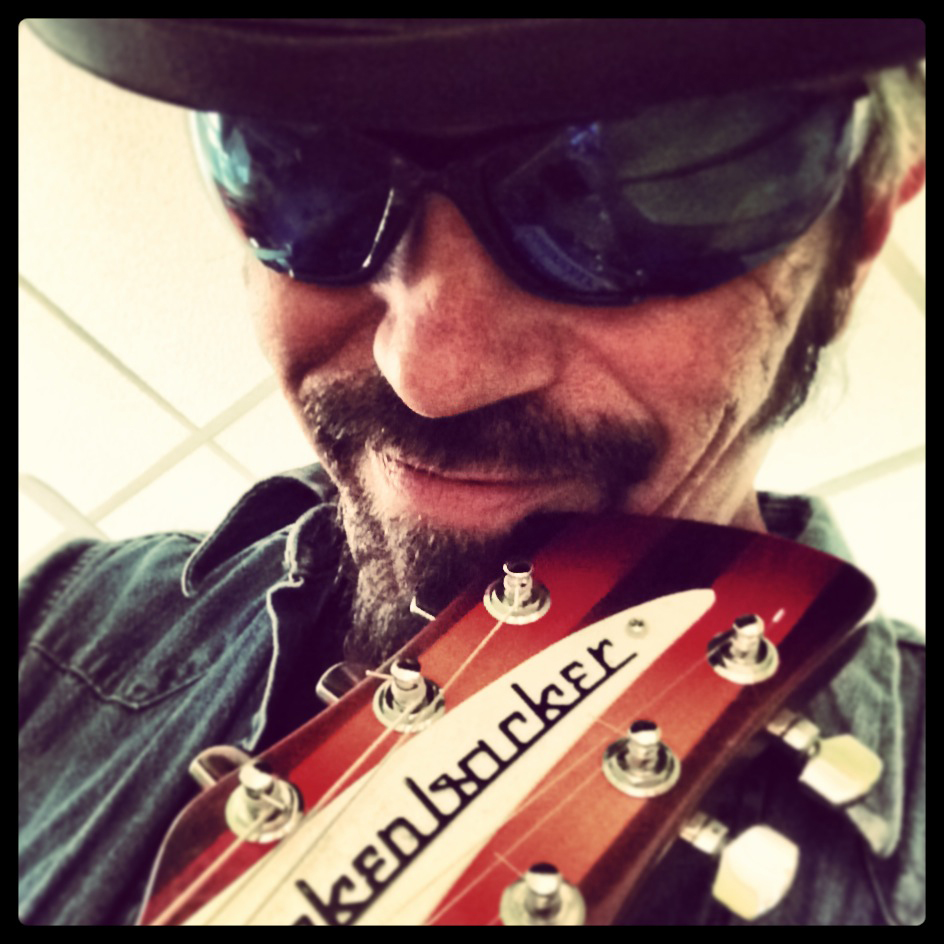
Maybe you go way back with Brian Henneman: back to Illinois in the Eighties and the yeeeeeeeee-haaaaaaaa thrash-twang cowpunk-and-scorched-brimstone of Chicken Truck, perhaps?
Or maybe you remember when Brian worked for Uncle Tupelo in the early Nineties: the roadie who would humbly come out for the encore, strap on a guitar and take the top of everyone’s head off with his lead breaks on a thundering cover of Neil Young’s “Cortez The Killer” … and then start lugging stuff out to the van.
And while we’re at it, how about the role Henneman played in alt-country history that rarely gets acknowledged? A lot of the snarl, growl, chug and crunch you hear on Wilco’s debut album — 1995’s A.M. — was courtesy of Henneman. (He was listed as a “special guest” for those pre-Jay Bennett sessions.) Put an ear to the greasily chicken-picked “That’s Not the Issue” or the Crazy Horseness of “Too Far Apart”: pretty cool, eh?
But never mind past glories and overlooked genius: The easiest way to dial into the music of Brian Henneman is to sit down with some Bottle Rockets — his main focus for the last 20-plus years. You could spend a lot of time trying to categorize their music — anything from rock ‘n’ twang to Americana punk — but in the end, you’re better off just listening and enjoying.
An excellent crash course in the Rockets would be Bloodshot Records’ recently released two-disc bundle that combines the band’s first two albums with a slew of neat previously unreleased music. Altogether, there are 11 albums in the Bottle Rockets’ catalog so far — 10 studio and one live — with a new one simmering.
Behind Henneman’s insightful lyrics and shoot-from-the-bluejeaned-hip riffs lies a total guitar nerd, one who still part-times in his hometown guitar shop when he’s not on the road and will talk gear for as long as you have time to spare. I had the chance recently to ask Brian about reuniting with the one that got away, the lifespans of parakeets and the recipe for Instant Keith Richards.
GUITAR WORLD: Brian, in most photos I’ve seen of late, you’re brandishing a Rickenbacker … it looks to me like the two of you are going steady.
All the latest guitar news, interviews, lessons, reviews, deals and more, direct to your inbox!
Yep, a Rickenbacker 360 … love it!
I’ve heard you refer to it during shows as your “new favorite guitar.” It sounds like you’d been pining for one for awhile.
Oh, yeah, 20 years, man. [laughs] I had one 20 years ago, but in those days I was too broke to keep it, you know? It was one of those deals where the house payment came due and the Rickenbacker had to go.
I think everybody has a “one that got away” story.
You got that right … and I’d been wanting one again ever since. [laughs] I’ve always loved the sound of a Rick. Tom Petty: he’s always played them. And Roger McGuinn, of course. I’m a huge, huge, huge Roger McGuinn fan.
So I finally bit the bullet and got myself one again. I’m old enough and wise enough now to get exactly the one I wanted; in the color I wanted; with every feature I wanted … and it cost a lot of money, but I figure it’s going to be the last guitar I buy in my life. [laughs]
I’ve got enough of ‘em. I’m full of guitars. [laughs]
Tell me what you like about the 360.
For one thing, I’m using a capo on a lot of the new songs, and the Rickenbacker is the best frigging capo guitar ever. The neck is really evenly shaped and it doesn't pull strings out of tune.
It seems like you’ve got a handle on the beast, as far as coaxing different tones out of it in the course of a set.
You know, I haven't really played my other guitars much since I got the Rick.
At the same time, John Horton — your picking partner in the Bottle Rockets — might work through a number of guitar voices during a show.
Oh, yeah, sometimes a Strat; sometimes a Flying V or a Firebird … John plays all kinds of stuff. The thing is, the Rickenbacker balances out with all of them … it always stands out from anything John wants to play.
Have you ever tried a combination that didn't balance out?
Ha! Good question! Yeah, one time we tried playing with two Stratocasters at the same time … and that did not work. [laughs]
Anybody get hurt?
Oh, man … We kept turning up because neither one of us could hear each other. At the end, we were so fucking loud … and we still couldn't hear each other.
But you’re still going to keep your Tele's handy, right?
I’ve got a Tele on my kitchen table here right now. (laughs)
Is it your Creston Tele — good ol’ Oat? That’s my idea of total guitar porn …
Isn’t it? [laughs] Yeah, Creston Lea builds a frigging awesome guitar … the one you’re talking about is actually my best Tele. My other one is a total frigging mutt: The body is like, from 1951 or something. There are no original parts except the body. And that’s a really good guitar, too, except it’s kind of flimsy and old funky and doesn’t like to stay in tune. So the Creston is the go-to Tele for any kind of real, live road use.
I know your amp of choice for a long while was a Fender Blues Junior. Do you still have that?
The Blues Junior is a frigging great amp. I used that thing for five years and it was just a killer amp. It finally just died of old age; they're like … like parakeets, you know?
So when it died, there was this amp at the guitar shop I work at — Killer Vintage in St. Louis — called a Buster. It’s made by Louis Electric and is a lot like a Tweed Deluxe with a stronger power section.
So then I was at the crossroads: Do I get this thing for, like, the price of five Blues Juniors? Or do I just keep getting Blues Juniors until I die? Just wear ‘em out and replace ‘em?
You know, I’m figuring my life span versus a Blues Junior’s would be about, oh, three more or so … something like that. Which would’ve been cheaper than the Buster … but I went ahead and got it anyway. It's a fucking killer amp.
And that’s what you’re using now.
Well, no … You see, I got the Buster before I got the Rick … and it's the best amp in the world for a Telecaster. You are Keith Richards when you plug into it, you know?
But the Rickenbacker didn't sound as good out of the Buster. It’s too dirty for the Rick. So then I was going through all this shit to try to get the Rick tone I wanted …
And ended up with …?
A ’74 Fender Deluxe Reverb, which is perfect for the Rickenbacker. I still have the Buster … and maybe I should’ve stuck with the Blues Junior!
I have one myself. All I’ve done is swap out the stock speaker with an Eminence Cannabis Rex and a new set of tubes. I’m playing a Classic Series Fifties Esquire through it with one of Jim Weider’s Big T bridge pickups. I love the thing.
Cool, sounds like a great combination. The Blues Juniors are the perfect size and the perfect volume. Look: I got five years out of mine. If I got five years, you’ll have yours the rest of your life. [laughs]
A former offshore lobsterman, Brian Robbins had to wait a good four decades or so to write about the stuff he wanted to when he was 15. Today he’s a freelance scribe, cartoonist, photographer and musician. His home on the worldwide inner tube is at brian-robbins.com (And there’s that Facebook thing too.)
